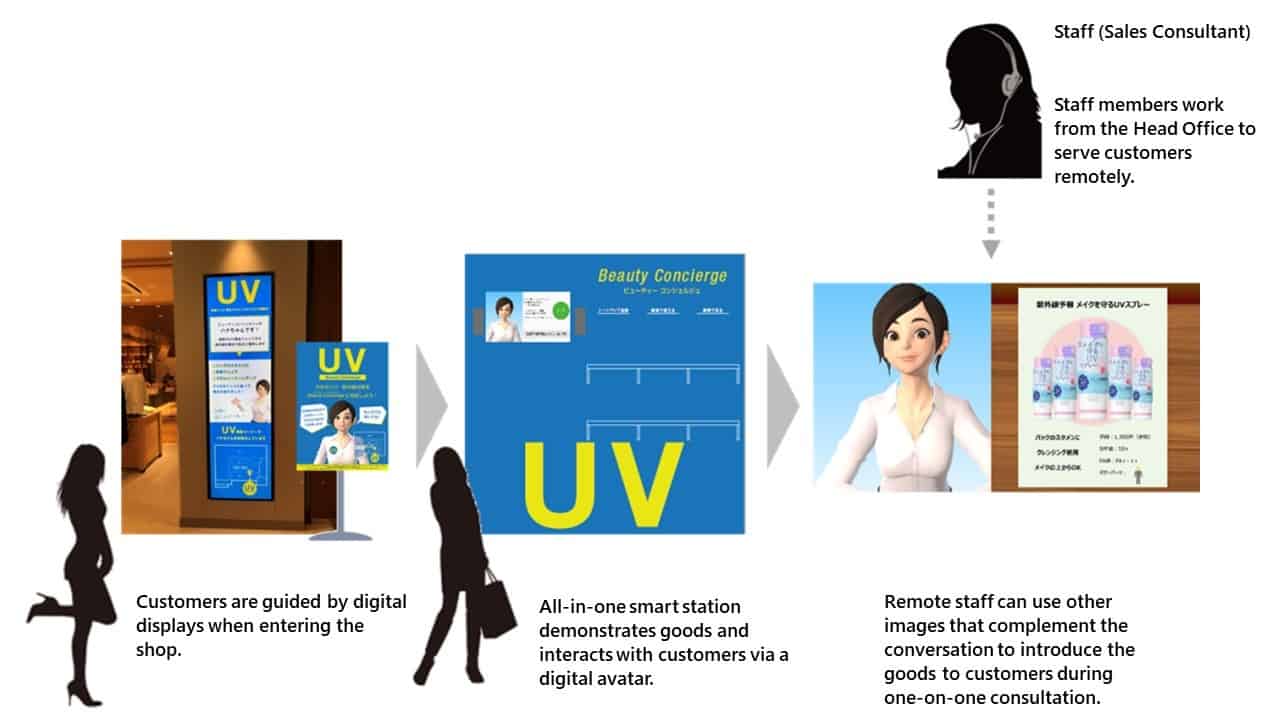Japanese lifestyle retailer Tokyu Hands has trialled an unmanned concept store at Scramble Square in Shibuya with the help of NTT DATA and Cyberlink, a pioneer in AI and facial recognition technologies.
Japan’s retail sector has been facing expansion difficulties caused by the significant decline of the labour force. This challenge is exacerbated by the restrictions on physical interaction in the wake of the COVID-19 pandemic. The unmanned concept store collected live customer data to demonstrate how retail stores that are both employee-less and touchless can thrive.
The smart retail project was tested for real-word application from June 1 to June 15, 2020. The integrated solution combines remote serving services, digital information monitors and the use of anonymised AI data analytics to drive a stronger self-service customer experience.
Cyberlink’s FaceMe facial recognition engine supported the pilot programme by identifying the age, gender and facial emotion data of customers inside the retail environment to assist in measuring the effectiveness of the project.
Integrated and interactive customer experience
The solution provides customers with guest guidance using interactive monitors and displays to facilitate touchless customer transactions. Sales consultants at the Shinjuku office use virtual avatars to offer brand instructions and product recommendations. With this, the retailer was able optimise the specialised product knowledge of sales consultants by giving them the flexibility to serve in different store locations despite of the geographical limitations.
 In-store cameras use FaceMe to identify age, gender and emotional data, combining with NTT Data’s voice-to-text technology, the collected data can be used in the future to further improvement of customer service quality, product development and estimate the return of investment of promotional events.
In-store cameras use FaceMe to identify age, gender and emotional data, combining with NTT Data’s voice-to-text technology, the collected data can be used in the future to further improvement of customer service quality, product development and estimate the return of investment of promotional events.
The pilot project provides a proof-of-concept on the FaceMe AI facial recognition engine's ease of integration and powerful capabilities.
FaceMe‘s edge-based architecture offers fast and efficient processing with higher accuracy and speed than other cloud-based solutions. It supports more than 10 operating systems, including Windows, Android, iOS, and various Linux distributions such as Ubuntu x86, Ubuntu ARM, RedHat, CentOS, Yocto, Debian and JetPack.
It can run on low-power CPUs to enable facial recognition on cost-effective IoT/AIoT devices and the ability to integrate with high-end servers, workstations, and personal computers equipped with a GPU, providing highly efficient performance.



